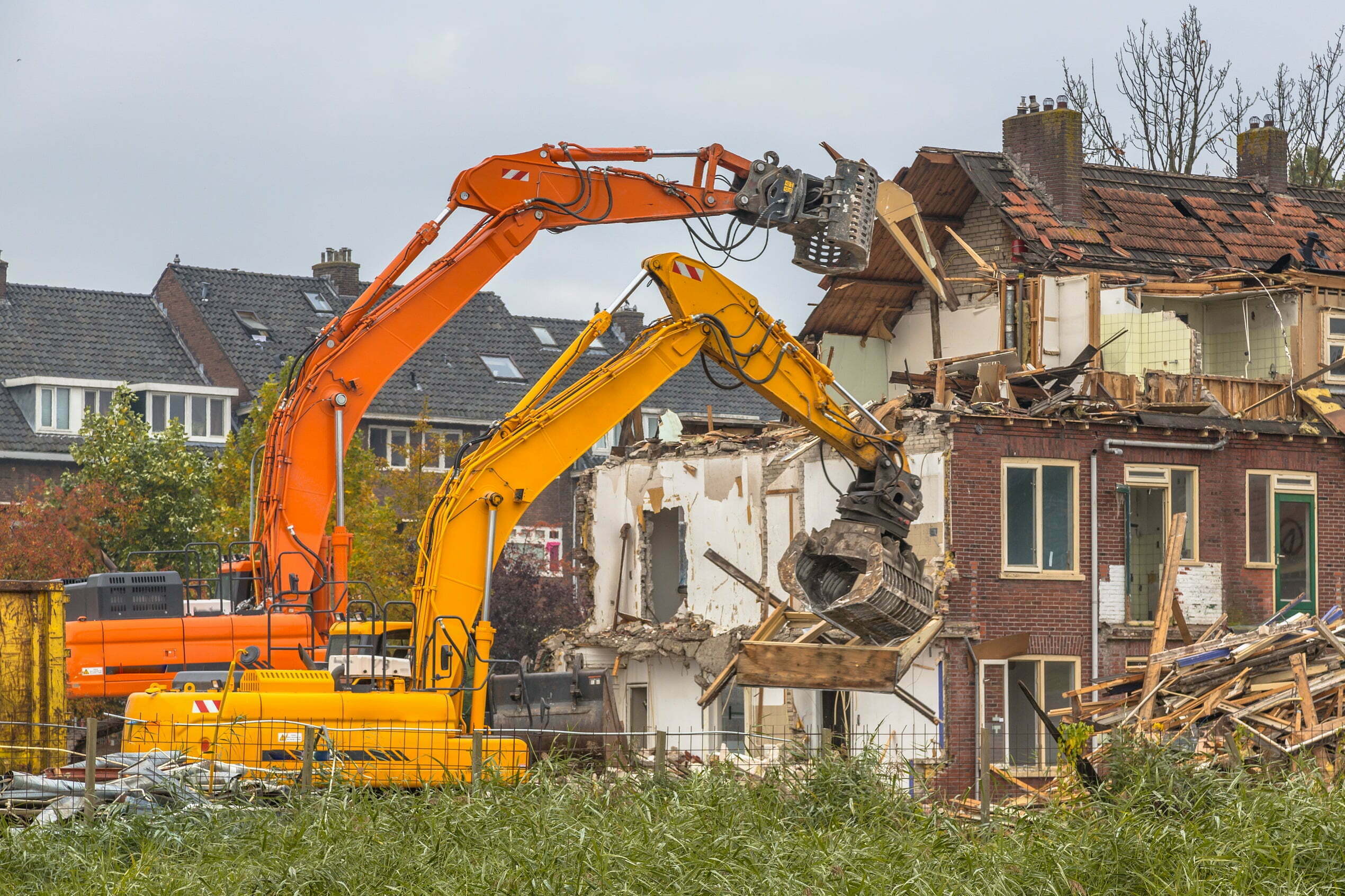All About Property Mutation in Pakistan
Property Mutation, Once you have completed all the formalities of a real estate transaction, the next and final step is to register the said property under your name to make it official in government records. This is known as the mutation of a property. It refers to the entire process in which the title of ownership of a property is transferred to another person. Simply put, it is the title deed (also called a conveyance deed) needed to have the property under your name.
Feeta.pk has compiled all the basic details that you need to know regarding the property mutation process.
When do you need a mutation certificate?
- When you buy a property
- When you inherit a property
- When you receive a property as a gift
- When you purchase a property through a power of attorney
How do you apply for a mutation certificate?
Since obtaining the mutation certificate is not a legal obligation, many new property owners postpone the process. However, the mutation process should ideally be started as soon as possible once the property has changed hands – at least within 3-6 months of the land purchase. Without it, the buyer may risk facing issues in obtaining complete legal ownership of the property in question.
The process just comprises a few, simple steps:
- Visit the land administrator’s office in the concerned area (where the property is located) and submit the required documents. These may also vary according to circumstances. For example, if this is a mutation of the property after the owner’s death, applicants would have to submit a death certificate, succession certificate, etc. You can cross-check on the government website or call on the helpline for further information, but you would still have to visit the municipal body to hand in the papers.
- Both the seller and buyer have to appear with two witnesses and the sub-registrar will hear their verbal agreement for trading the property.
- This will be recorded in the Inteqal (Mutation) Register, and you will be handed a receipt.
- Afterward, you would have to submit a nominal process fee to the National Bank of Pakistan (this will be just a one-time charge).
- There will be a physical verification of the site by the relevant authorities.
- The municipal body may take up to a month to update the record, after which they would issue the mutation certificate.
Why is it important to get a mutation certificate?
Even though it is not a legally binding document, the mutation certificate is still necessary for several reasons:
- It serves as additional proof of ownership.
- You will be able to record the property under your name in the municipal local body.
- It can also be required when applying for utilities, such as electricity and water services.
- It may also serve as a tax record.
- You would need it if you want to sell or transfer your property to someone else in the future. If you are unable to produce a mutation certificate before potential buyers for verifying the chain of ownership, you may risk the sale of your asset.
- In case of land dispute, corruption or hostile takeovers, the mutation certificate can help challenge false claims in court.
- All immovable assets (individual homes, apartments, land, etc.) are subject to property tax payment, and mutation is just a way to ensure that. The certificate is required by the government to fix the property tax liability and other levies on the rightful owner.
- It can also help you correct any errors in the records in case there is an unauthorized transaction.
What is the difference between registration and mutation?
There is some ambiguity over the difference between property registration and mutation since the purpose of both seems similar. Property registration refers to the process in which you claim legal rights on a property by registering the sale under your name. The process of mutation, on the other hand, is the buyer’s responsibility and can only be initiated once the property registration has been executed.
| Property Registration | Property Mutation |
| Also called a baye-nama | Also called inteqal |
| Mandatory process after transfer of property | Not a legally required process after the transfer of property |
| Legalizes the actual sale of a property | Transfers ownership of the property |
| A sale deed | Does not require a sale to take place; it applies to inherited and gifted properties too |
While the key differences between the two are just a few, it is still important to know the significance of each to avoid any potential problems or confusion in the future if you choose to resell the property. This is why it is advised to acquire both in the beginning.
If you are looking for more information on the real estate processes in Pakistan, you can visit this link.
All About Property Mutation in Pakistan
The Ultimate Guide to Selling Property in Pakistan
Selling and Transferring Property in Pakistan is a regular occurrence in the country, where hundreds and thousands of people sell and transfer property. For those familiar with the process, the transferring procedure might just be a piece of cake. But for people who are new and confused about where to start, you’ve come to the right place.
Before we jump into the tricky aspect of this process, let’s clear the air about what exactly transferring property means and why it is an essential aspect of buying and selling property in Pakistan.
What do we mean by transferring property?
As per the law, any individual who owns a property should have the land or property verified under their name. The land should be under the designated ownership; only then can they sell the property to themselves. This is the basic requirement of selling a property.
In Pakistan, the transfer of any property generally consists of the owner transferring the title of the land from one person to the other. Transferring property can occur in multiple ways for various reasons, such as a mortgage, gift deed, inheritance, lease, exchange, etc. All such explanations are why transferring is an essential legal procedure.
Who is eligible to transfer property?
All individuals who can sign a contract are authorized to transfer property ownership in Pakistan. According to the Contract Act 1872, a contract is claimed as a binding agreement between two parties, meaning that it is a legally binding document for any sale and purchase of land in the country.
There are a few exceptions for people who are not eligible to transfer a property:
- Minor: Anyone under the age of 18 is a minor and therefore cannot carry out the process.
- Unstable Individuals: Someone who cannot understand the consequences of their actions, for instance, that of a mentally ill person. Other reasons can be permanent or temporary physical disability such as a Coma etc.
- Legally Barred Individuals: Someone barred from signing contracts cannot transfer property in Pakistan.
What are the steps involved in transferring and Selling a property in Pakistan?
The transferring process, although time-taking, is a simple and easy process with not many legal proceedings. We’ll break down the process into different steps to help you better understand.
Token (Bayaana)
This is the very first step of selling after you’ve successfully secured a client. This involves the buyer giving approximately 1 / 4th of the total price. If not the exact percentage, there is an agreed amount between the buyer and the seller to indicate an agreement from both sides of the party.
The Token (Bayaana) is given by the buyer with a series of negotiations and based on a contract, in which all details are specified. After this, the seller holds negotiations with any other potential buyers.
Usually, a specified period is set and written in the contract for the full amount to be paid. If the sale falls through, the token is returned. But if the full amount is not paid in the specified time, the seller has no obligation to return the token, even if the sale doesn’t go through.
What is a Property Sale Agreement and how can we get it?
A sale agreement contract is a set of required documents that include all information related to the seller and buyer involved in the transfer process. In Pakistan, these are the required documents that are attached with the Bayaana form:
- Complete details of the property with the property owner’s verified name
- Terms of sale for the property
- The total amount of money which the property is being sold for
- Final date for the buyer to pay the remaining sum of money
What is the complete list of documents required?
To carry out the transfer process smoothly, you need to collect the following documents organized. You’ll need:
- Recent Passport Photos of both parties involved (Buyer and Seller)
- Photocopies of National Identity Cards of both parties
- Original Purchase Deed of the Seller (From the time they purchased the property)
- The original ‘Sale deed’ which is the agreement contract between both parties
This list of documents can also include some more documents depending on the province, region, area, etc. (A lot of documents, we know, but verified property takes tough measures!)
- A ‘Record of Rights’ also known as Fard-e-Malkiat, is a form that can be obtained by the seller from the property registration office. This guarantees that the property is under the name of the seller.
- You’ll need a Non-Demand Certificate (NDC), a document that shows you don’t have any fine due on the property. Depending on the location, you can get this from the local development authority’s office.
- For properties in private housing schemes, there is the need to request a letter from a particular society to carry out the property transfer. This can be used in place of the Fard-e-Malkiat document.
Possession of Stamp Paper and Tax Payment

Source: Pinterest
This is one of the essential and final steps of the transfer process. You’ll need a stamp paper to draft the deed for the sales; that will be the contract for the sale. You can choose. Buyers; will be required to pay stamp duty and taxes during this step.
Let’s take a look at this easy breakdown of the tax duty involved:
- Stamp Duty 3%
- Capital Value Tax 2%
- District Council Fee 1%
- Fixed Registration Fee PKR500 (Can differ as per govt. Order)
Drafting the Sales Deed
In Pakistan, the sales deed is usually recommended to be drafted by a property lawyer or a property agent aware of the bylaws and the rules involved in the process. This is a particularly safe option to avoid any complications that might arise in case you are doing it yourself.
Although, people who are selling and buying property as a business have become familiar with constructing the ideal draft for this deed, which can be done easily with the help of the internet. However, the common practice and recommendation are to take the help of a lawyer to avoid any future complications that may occur.
What do we do after drafting the Sale Deed?

Source: Freepik
Finally, after a long process, you’ve reached the last step. You can take the sales deed (inscribed stamp paper) along with the required documents to the registrar’s office. From here, the sub-registrar will call both parties simultaneously and hear their verbal agreement for the trading of property.
You’ll need to sign the documents and put in your fingerprint to verify the final sale and complete the transfer process. Once this is done, the official will register the sale deed successfully, then the transfer process is complete, and the property is now successfully transferred to the buyer.
How much is the Commission for the Property Dealer Involved?
If you’re wondering what the person who helped you secure a client and help you proceed with the sale and transfer of the property is, there is a commission that the dealer/agent gets from the client. Although there are no specific laws to govern and record the work of real estate agents and dealers in Pakistan, the general practice remains a constantly changing variable and experiences changes from time to time.
Usually, the commission of property agents comes to around 1% of the total value of a property. This 1% of the value is each from the buyer and seller as the commission to the dealer. If the buyer and seller both have different agents, then both agents get to keep a 1% commission each from their own clients. Sometimes, property agents will ask for as high as 2% of the property value, or even lower than 1%. The amount varied according to the success, reputation of a property dealer, or property value.
Suppose you’re looking to learn more about the legal aspects and procedures involved in property buying and selling. In that case, you can stay connected with our blogs at Feeta.pk, where you can easily find comprehensive information to guide you through the real estate market.
The Ultimate Guide to Selling Property in Pakistan
- Published in Housing Schemes, Infrastructure, International, Property Business In Pakistan, Property Consultant, Property In Pakistan, Property Laws, Property News, property sell in pakistan, property selling, Real Estate, real estate business, real estate buyer sales, real estate financing, real estate goals, Real Estate Guide, real estate investing, real estate investment, Real Estate Investments, real estate market, Real Estate News, Real Estate Trends, USA
Crackdown on Encroachments in Zone 4.5 by Building Control South
CDA Building Control South Director Shafi Marwat has ordered a crackdown against encroachments campaign against illegal residential and commercial construction in Zone Four and Five.
In this regard, the authority has formed two teams – with Deputy Director Javed Zehri in charge of the Zone Four team while Deputy Director Sajjad Bajwa will oversee the operation in Zone Five.
Director South Shafi Marwat has instructed the concerned teams to write a letter to the Enforcement Directorate to stop illegal constructions in the stated areas.
For news and blogs, visit Feeta.pk.
Crackdown on Encroachments in Zone 4.5 by Building Control South
Essential Land and Property Laws
Land and property; two reciprocal terms
Land and property are two terms that are interchangeable and often come together. Property can be defined as a thing that is owned by a person; it can be tangible and intangible or movable or immovable. Let’s make it more simple and define it as having a legal title over something considered to be your property. Land and property together are explained as a piece of land or real estate owned by a person under legal laws.
What is the difference between movable and immovable property?
Between movable and immovable a variation is drawn in Pakistan, immovable property is defined as the things that are attached to the earth. ie buildings and land plus the benefits that are to come from land or anything that is attached to the earth but under the laws, grass, crops, and machinery embedded in or attached to the land. Considerable movable property is defined as anything that is not included in immovable property is movable property, therefore, the definition of movable property is given about immovable property.
What is the definition of land in Pakistan?
Not only Under the constitution of Pakistan 1973 but also other laws related to land, property rights are protected and have always been brought into notice. Articles under the constitution of the Islamic republic that focus on property rights are articles 23, 24, 172, and 173.
Let’s have a look at these important articles that explain land ownership in Pakistan.
Article 23 of the Constitution of Pakistan:
Under Article 23 it is stated that “every citizen shall have the right to acquire, hold and dispose of the property in any part of Pakistan, subject to the constitution and any reasonable restrictions imposed by law in the public interest.”
Article 24 of the Constitution of Pakistan:
About the acquisition of private property article 24 makes the following statement. “No property shall be compulsorily acquired or taken possession of saving for a public purpose, and save by the authority of law which provides for compensation therefore and either fixes the amount of compensation or specifies the principles on and how compensation is to be determined and given. ”
Article 172 of the Constitution of Pakistan:
In article 172, it is stated that “any property which has no rightful owner shall be located in a province, vest in the government of that province and every other case, in the federal government.”
The article simply means that firstly, minerals, land, and other valuable things that are within the continent or beyond territorial waters of Pakistan come under the ownership of the federal government, and secondly, natural gas and mineral oil that is found within the provincial territory shall be equally divided amongst the federal and the provincial government.
Article 173 of the Constitution of Pakistan:
The last article that talks about the protection of land and property laws, article 173 states “the federal and provincial government can grant, sell, dispose or mortgage any property that vests in them. These governments can purchase or acquire property. All properties acquired for the federation or of a province shall vest in the federal government or the concerned provincial government. ”
In Pakistan, the land is divided into three basic categories; private owned land, state-owned land, and village common land.
Private owners of the land have all the rights to gift, sell, exchange or even dispose of their private land to whomever or however they want but by the legal rules and regulations.
State land is also known as crown land ie Sarkaari Zameen is the land that is under the control of the government, Federal, Provincial or Local. In some cases, state land is given to the citizens under some schemes such as horse studs, cattle breeding, etc. in this scenario the land is under the control of the government but is possessed by the citizens.
Village common land termed as “Shamilat land” is the land given by the state to the owners of a village which can be used for the common purposes of the village community. Every person who is recorded as an owner of land in a village is also a joint owner in shamilat.
What is the difference between Commercial and Personal Property Law?
Commercial Property Law:
The property that is used for business purposes is termed as commercial property; besides this, it can also be termed as land that brings about profit for the owner. A lawyer who works for commercial property is likely to have clients from a wide range of areas because they are capable of dealing not only with domestic but international clients as well.
Examples of commercial property can be from a restaurant, warehouse, or building. You can easily make money / earn profit by reselling it or leasing it out.
For more details related to commercial property visit feeta.pk.
Personal Property Law:
Buying and selling of personal or residential property are defined as personal property law. It means that personal property includes one’s own house, residential unit, or any land that they own under legal terms. The lawyers who work under this law also have clients in a wide range of domestic and international just like commercial property law.
Transfer of land and property
The basic rule for transferring land or property is that it is a must according to the law that if an individual possesses a property it must be registered and verified under their name, this is important if you want to sell your property. There are several reasons for the transfer of property which can be gift deeds, inheritance, mortgage, exchange, etc.
Who is not eligible to transfer a property?
There are a few exceptions for people who are not entitled to transfer a property which includes, legally barred individuals, unstable, and under 18.
Laws of Tenants:
The law of tenants includes a few responsibilities that the tenants have to abide by. Which include
- It is important to pay the agreed amount on time. This has to be followed even if there is an ongoing dispute between the tenant and the owner.
- Be careful that you do not cause any damage to the property and if accidentally any damage is caused by you you must pay for it.
- If you are facing any problem while residing in the residence it is very important to immediately report to the owner so that the problem can be fixed.
- If there are any charges mentioned or highlighted in your agreement that you have to pay, you must abide by them, the entire time you are staying on the property.
Feeta.pk in this blog has focused on the basic land and property laws everyone should know about. Being aware of your rights and having knowledge about the laws is very important so that your rights are protected and no one can fraud or scam.
Essential Land and Property Laws
- Published in International, Projects, Property Laws, Property News, Real Estate News
Key Property Inheritance Principles
These are the Principles of Property Inheritance That You Need to Know:
A legal heir is defined as an individual who is entitled to a share in the assets of a deceased person. These may include real estate properties, insurance amounts, bank account holdings, stocks, bonds, shares, etc. As per the inheritance laws of Pakistan, which are based on the Islamic Sharia law, the legal heirs of the deceased can only include the spouse, parents or children.
Feeta.pk has compiled the key highlights of the process, laws and rights of succession in Pakistan to help you navigate through what is otherwise a convoluted affair.
The purpose of a legal heir certificate
Once the death certificate of the deceased has been obtained, only the successors are eligible to apply for a legal heir certificate. The legal heir certificate is a document required for recognizing the legal heirs of a deceased person. It can be used for the following purposes:
- For claiming insurance
- For processing the family pension of the deceased employee
- To receive two such as provident fund, gratuity etc. from the government
- To receive salary arrears of the deceased
The purpose of a succession certificate and how to obtain it
On the other hand, a succession certificate is issued to transfer both movable and immovable properties of the deceased to his / her legal heirs. The letter of administration grants the right to administer the estate of a deceased person.
Any one of the legal heirs can apply for a succession certificate. The Succession Act 1925 governs all the procedures related to succession certificates in Pakistan. In case of multiple legal heirs, each party can apply for the succession certificate individually and the court can issue it to them according to their share in the property. Another alternative is that all legal heirs can file a joint application in favor of one legal heir who can distribute the property among other heirs afterward.
The Government of Pakistan also introduced a secure online portal in 2021 that provides letters of administration and succession certificates within 15 days, as opposed to the previous timeframe of 2-7 years. This was developed by the Succession Facilitation Units of the National Database Restoration Authority (NADRA) with the aim of removing any unnecessary delays and hassle during the process.
This is especially an advantage for overseas Pakistanis, who would not be required to make an appearance at courts anymore to receive the succession certificate.
The digital certificate has several security features, including a real-time verification facility. The process to obtain it can be completed in just a few, simple steps:
- Initiating the application:
The successor has to provide his / her national identity number and the death certificate of the deceased. - Recognizing the legal heirs and assets:
The applicant has to give relevant details of the legal heir (s) along with information related to the deceased’s moveable and immovable properties. - Verifying the legal heirs:
All the legal heirs mentioned in the application have to visit Nadra’s registration center for biometric verification. - Advertising:
NADRA will publish a notice in newspapers to ensure there is no one who has any objections against that particular application. - Printing & delivery:
If no opposition comes forward within 14 days of publication, the letter of administration/succession certificate will be issued to the applicant.
It is important to note, however, that each province has its own conditions for which documents are necessary for initiating the succession certificate procedure.
Laws of inheritance in Pakistan
There are two laws that protect the rights of inheritance in Pakistan:
- The Muslim Family Laws Ordinance (1961), gives effect to certain recommendations of the commission on marriage and family laws.
- The West Pakistan Muslim Personal Law (1962), consolidates and amends the provisions of the application of Muslim Personal Law (Shariat).
A few additional things to note are:
- There is no inheritance tax in Pakistan.
- The last domicile of the deceased also dictates the division of inherited property.
- If the deceased gifted a property to another party in their lifetime, it cannot be contested in court after their death.
- Legal heirs can only distribute properties if the outstanding debts of the deceased have been settled.
- If a legal heir passes away before the distribution of inheritance, their share will be divided among the other heirs.
- It is highly advised to hire a lawyer for the distribution of inherited property.
Women’s rights of inheritance in Pakistan
There are many cases where female heirs, especially in Pakistan’s rural areas, lose out on their share of inheritance in favor of male family members. This is mostly due to their lack of awareness of women’s legal property rights. The Enforcement of Women’s Property Rights Bill was passed in 2020 to ensure their rightful inheritance.
According to Section 498A of the Prevention of Anti-Women Practices Act (2011), it has also been termed illegal to deprive women of their inheritance in any manner. Any violation of this act will be punished with imprisonment of 5-10 years or with a fine of Rs. 1 million or both.
The inheritance rights of women have been outlined below:
- The wife of the deceased will receive 1 / 8th of the inherited property if she has children. If she does not have any children, she will own 1 / 4th.
- The mother of the deceased will 1 / 6th of her son’s property. If the deceased had no parents or children though, the mother will receive 2 / 3rd.
- If a female has one or more brothers, she will receive half of their share after their father’s death.
These can still vary in cases of special circumstances.
For more details on property inheritance, visit Feeta blogs.
Key Property Inheritance Principles
- Published in International, property, Property Laws, Real Estate, Real Estate Guide, Real Estate News, Real Estate Trends, Zillow










